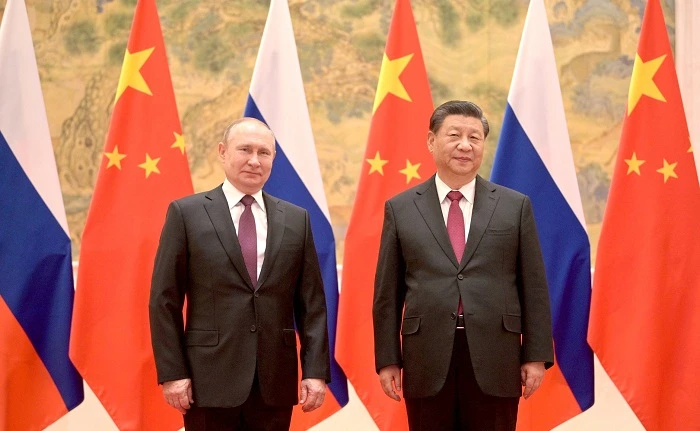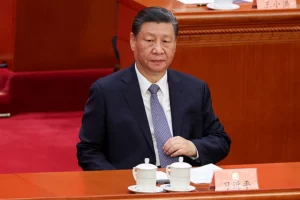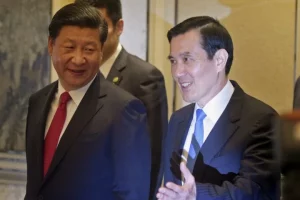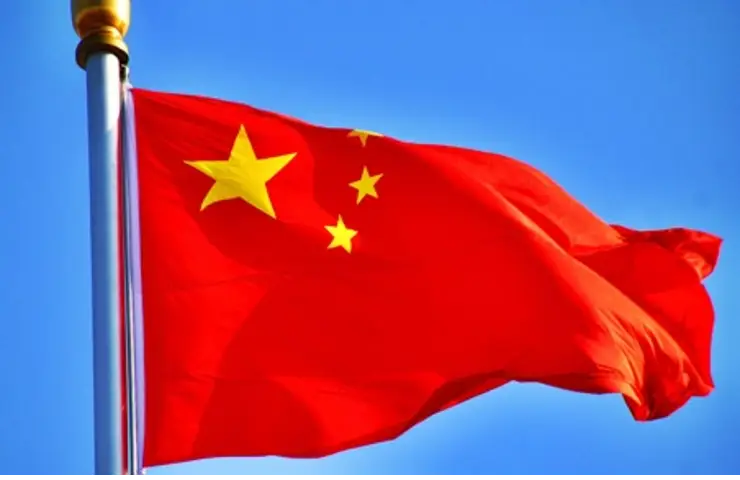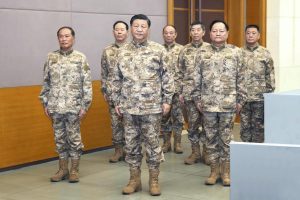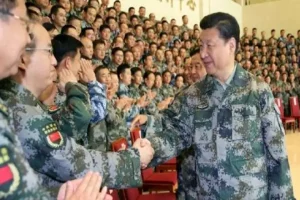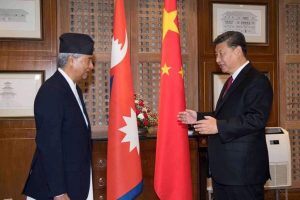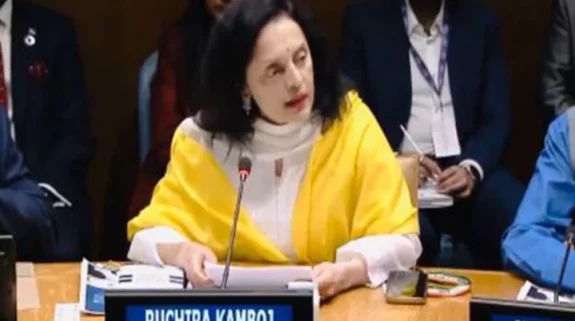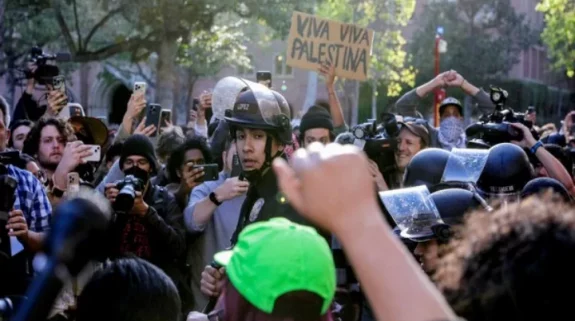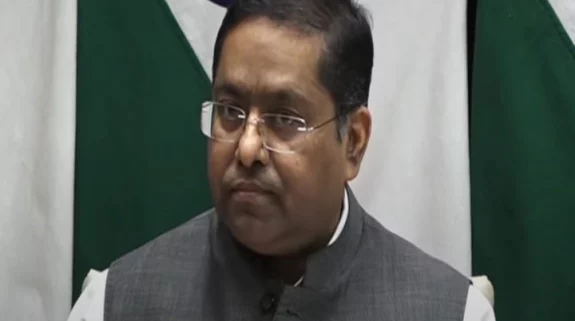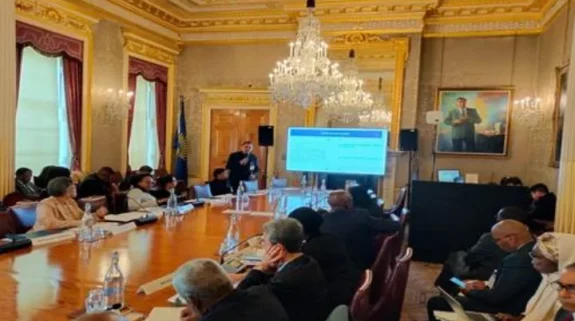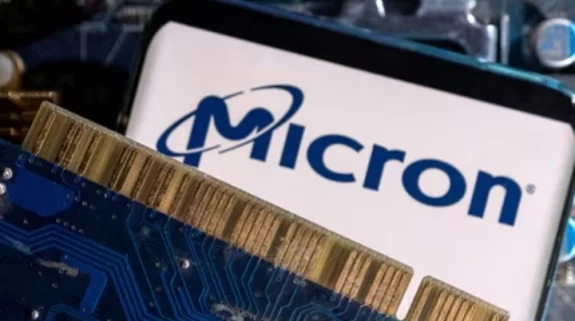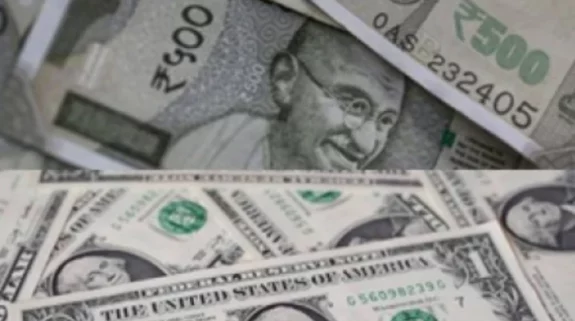Russia and China have agreed to continue cooperation in the framework of the Russia-India-China (RIC) format during the negotiations held between Russian President Vladimir Putin and Chinese President Xi Jinping in Beijing today.
Putin is in the Chinese capital to attend the opening ceremony for the 2022 Winter Olympic Games.
While the emphasis in the negotiations was placed on the bilateral agenda, trade and economic, military-technical cooperation, the two leaders also spent a fair bit of time discussing the international situation and regional issues during the working lunch.
"The parties intend to develop cooperation within the framework of the 'Russia-India-China' format, as well as to strengthen interaction at such venues as the East Asia Summit, the ASEAN Regional Forum on Security, the Meeting of Defence Ministers of the ASEAN Member States and Dialogue Partners," stated the joint statement adopted by both the countries.
As reported by IndiaNarrative.com last month, Moscow is keen on increasing cooperation with its partners New Delhi and Beijing through the RIC format in the region, hoping to break ice between the two neighbours in the process.
The matter has been discussed extensively between Prime Minister Narendra Modi and Russian President Vladimir Putin during the latter's visit to New Delhi for the India-Russia Summit held in New Delhi last December and the follow-up telephone conversations between the two leaders.
While India has expressed its continued commitment to foster closer dialogue and cooperation among the three largest nations in the Eurasian region under the mechanism, it has made clear that any future cooperation with Beijing, especially through the RIC trilateral, would majorly depend on China's complete disengagement from all the friction points along the Line of Actual Control (LAC) in Eastern Ladakh in accordance with the existing bilateral agreements and protocols.
External Affairs Minister S Jaishankar and Russian Foreign Minister Sergey Lavrov have been regularly exchanging views on enhancing communication on regional and international affairs, including working together in the SCO, BRICS, RIC, as well as in the UN and Security Council.
A few days after Putin's visit to New Delhi, the Russian President had held a virtual meeting with Xi Jinping on December 15.
After the hour-and-a-half conversation between the two Presidents, Putin's top aide Yury Ushakov had told the media in Moscow that the heads of state have planned to hold "in the near future" a Russia-India-China meeting.
"Putin informed Xi Jinping about the visit to New Delhi on December 6… The topic of cooperation in the Russia-India-China format was addressed and the leaders agreed to continue exchanging opinions in this regard and to endeavour to hold the next summit within the RIC framework in the near future," Ushakov had said.
Five days later, the Russian President had dialled PM Modi as both leaders "followed up on some of the issues" discussed during Putin's visit to India.
"The leaders agreed to remain in regular touch on all aspects covered under the India-Russia Special and Privileged Strategic Partnership, and to continuously strive to further deepen bilateral cooperation as well as consultation and coordination in multilateral fora," said the Prime Minister's Office in New Delhi.
As reported by IndiaNarrative.com on Friday, Denis Alipov, the new Russian Ambassador to India, has also highlighted the significance of RIC, saying that this format can actually help "reduce the tension" that has arisen between India and China in recent years.
"Of course, we do not intend in any way to impose our mediation services, but we will not refuse to help build confidence between India and China, if both sides so desire. Because there is simply no other way than interaction, development and strengthening of ties between these largest Asian countries," Alipov, had told Izvestiya, a Russian daily, in an interview.
In today's joint statement, the two permanent members of the UN Security Council said that they aim to comprehensively strengthen the Shanghai Cooperation Organisation (SCO) and further enhance its role "in shaping a polycentric world order" based on the universally recognized principles of international law, multilateralism, equal, joint, indivisible, comprehensive and sustainable security.
"They consider it important to consistently implement the agreements on improving mechanisms to counter challenges and threats to the security of the SCO member states and, in the context of solving this problem, advocate expanding the functionality of the SCO Regional Anti-Terrorist Structure," the statement mentioned.
Both countries also said that they intend to continue to work in the interests of strengthening the role of ASEAN as a key element of the regional architecture.
"The parties support ASEAN's central role in developing cooperation in East Asia, continue to enhance coordination on deepening cooperation with ASEAN, and jointly promote cooperation in the areas of public health, sustainable development, combating terrorism and countering transnational crime," the joint statement stated.






